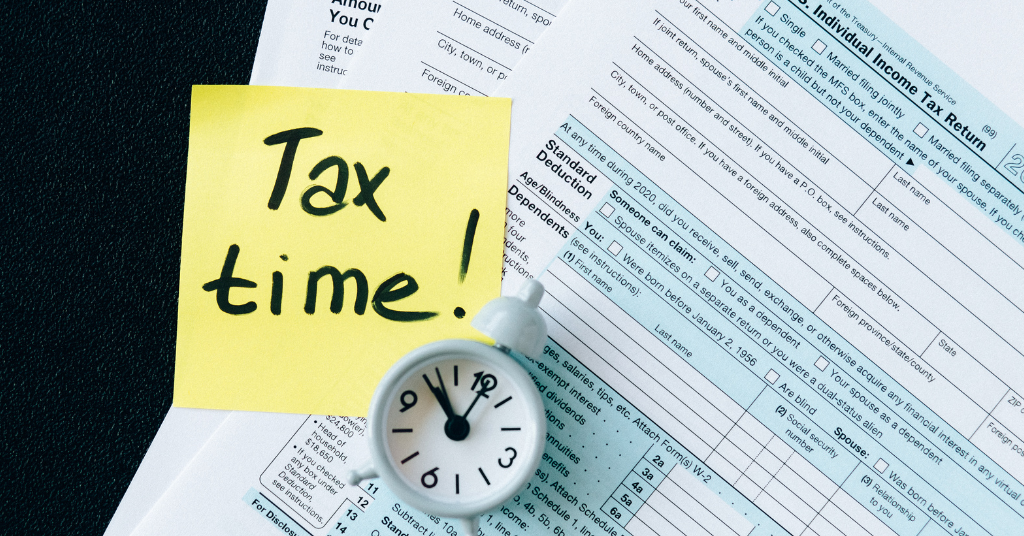

Maximize Your 2024 Refund: Tax Breaks You Might Be Missing
Category: Accounting
Whether traveling, buying an automobile, eating out at a restaurant, or shopping online, you’re most likely familiar with using credit. In fact, with 70% of the United States population carrying at least one credit card, people in this country are making more purchases using credit than ever before.
Americans have an average of four credit cards, and over $5,000 in average debt, with debt levels continuing to rise. This begs the question: How confident are you that you are managing your credit card debt responsibly?
Furthermore, although credit cards are the most well-known and common form of consumer credit, the term can also apply to personal loans or collateralized consumer loans, like car loans or mortgages.
With all this in mind, it’s a good idea to brush up on your understanding of consumer credit.
This post will explore consumer credit in more detail, including advantages and disadvantages you should keep in mind. I will also provide some advice on what to look for when seeking a consumer credit counselor.


To put it simply, consumer credit is a system that allows consumers to borrow money or take on personal debt to finance transactions, like the purchase of goods and services. The consumer can then defer repayment of that debt over time with interest.
This is a vital aspect of the U.S. economy.
After all, the more financial flexibility a consumer has, the more they can stimulate the economy by making purchases. When consumers make more purchases, it raises the GDP (Gross domestic product, or the total market value of all goods and services produced). Companies increase supply in anticipation of more demand, which further boosts the GDP. Finally, banks respond by lending more money, and the cycle of growth continues.
If you have a good credit score, meaning that you have a history of repaying your debts in full and on time, you’ll be able to borrow money more easily. If you have bad credit, you’ll find it much harder to borrow money or get approved for things like loans and credit cards.
It seems pretty simple, right?
However, what you may not realize is that consumer credit breaks down into two broad categories: installment, or closed-end credit, and revolving, or open-end credit.
With this type of credit, the lender issues the borrower a fixed amount to use for a defined purpose over a set period of time. Put another way, installment or closed-end credit allows consumers to purchase things in multiple payments.
An agreement or contract specifies the amount of money, the interest rate, and the total amount of time it will take to pay off the debt. Payments are usually made in installments of equal amounts, often at monthly intervals, and the purchased item itself serves as collateral should the borrower default.
On the other hand, revolving credit is a line of credit that remains open-ended, or continuous, up to a certain dollar amount. This type of credit enables consumers to access a set amount of money from a lender as often as needed. As long as the borrower makes minimum partial payments each month, the line remains open and available for any purchase less than the limit or available funds.
Credit cards fall under this category of consumer credit.
Both categories of consumer credit offer advantages and disadvantages.
For example, installment credit is useful for expensive items, such as furniture, cars, or appliances. The ability to “buy now and pay later” has become increasingly popular in recent decades. However, installment credit is not without risk. Depending on the lender, a missed payment could incur deferred interest or other hidden penalties. Additionally, it can lead to overspending, especially in younger consumers.
Meanwhile, revolving credit gives the consumer more freedom to spend and repay the money, unlike a loan for a specific purchase or an installment plan with regular payments.
However, interest rates for revolving lines tend to be higher, as there is no collateral to secure the credit. As a result, this type of credit is challenging to pay off in full. Instead of paying the balance off entirely, making the minimum monthly payments is usually not enough to prevent interest from accumulating and the borrower’s debt from rising nevertheless.
Generally speaking, consumer credit can be very advantageous when managed responsibly.
In the event of an emergency, for example, it can help defray a heavy financial lift. Furthermore, credit cards are much safer to carry than large sums of cash, and the United States has been moving even faster towards being a cashless society since the pandemic.
On the other hand, don’t forget that banks, lenders, and financial organizations make most of their money from interest and fees. As such, they will never hesitate to raise your interest rate if you make a single late payment. If you cannot pay off your balance in full each month, a line of revolving credit can quickly become overwhelming.
If you do find yourself overwhelmed, you are not alone and there are consumer credit counseling organizations that can help.
Reputable credit counseling organizations advise on managing money and debts, help develop a budget, and usually offer free educational materials and workshops. Certified counselors have trained in consumer credit, money and debt management, and budgeting and will discuss the person’s entire financial situation to help develop a personalized plan.
There are many ways to get credit counseling, and most credit counselors can provide their services through local offices, the internet, or the telephone. Schools, military bases, credit unions, and other organizations can also offer you advice and referrals.
Be careful of any service that wants to charge you before they’ve even looked at your situation.
A reputable credit counseling agency will provide information about their services for free without requiring any personal details. Check out the state Attorney General, local consumer protection agency, and Better Business Bureau to see if the company has any complaints against it.
It would be best to avoid any credit counseling organizations that push a debt management plan (DMP) as the only option before analyzing the individual’s financial situation.
A DMP is a savings strategy that requires you to put money into an account each month with the credit counseling organization, which uses the funds to pay off unsecured debts according to a planned payment schedule. However, this can be a risky move if you are working with a disreputable organization.
Additionally, you should be very cautious when dealing with debt negotiation companies.
Debt negotiation is not the same thing as credit counseling or a DMP. It can be risky and harm your credit report. In fact, many states even have laws regulating debt negotiation companies. Remember, just because a company describes itself as a “nonprofit,” there’s no guarantee that the services offered are legitimate.
Be careful of debt negotiation companies that:
One way or another, there’s no avoiding consumer credit in the modern world. But by understanding it in more detail, examining the pros and cons of different categories of credit, and finding the right consumer credit counseling, you can feel confident that you are managing your credit responsibly and ensuring a secure financial future.
If you are a client and would like to book a consultation, call us at +1 (212) 382-3939 or contact us here to set up a time.
If you aren’t a client, why not? We can take care of your accounting, bookkeeping, tax, and CFO needs so that you don’t have to worry about any of them. Interested? Contact us here to set up a no-obligation consultation.
Interested in receiving updates in your mailbox? Check out our newsletter, full of information you can use. It comes out once every two weeks, and you can register for it below.


Category: Accounting


Category: Accounting


Category: Accounting
Send us a message and we will contact you as soon as possible.
Send us a message and we will contact you as soon as possible.
Jeff Coyle, CPA, Partner of Rosenberg Chesnov, has been with the firm since 2015. He joined the firm after 20 years of business and accounting experience where he learned the value of accurate reporting, using financial information as a basis for good business decisions and the importance of accounting for management.
He is a diligent financial professional, able to manage the details and turn them into relevant business leading information. He has a strong financial background in construction, technology, consulting services and risk management. He also knows what it takes to create organizations having built teams, grown companies and designed processes for financial analysis and reporting.
His business experience includes:
Creating and preparing financial reporting, budgeting and forecasting.
Planning and preparation of GAAP and other basis financial statements.
Providing insight on financial results and providing advice based on those results.
Jeff also has a long history of helping individuals manage their taxes and plan their finances including:
Income tax planning and strategy.
Filing quarterly and annual taxes.
Audit support.
General financial and planning advice.
Prior to joining the firm in 2015, Jeff was in the private sector where he held senior financial and management positions including Controller and Chief Financial Officer. He has experience across industries, including construction, technology and professional services which gives him a deep understanding of business.
Jeff graduated from Montclair State University, he is a CPA and member of the American Institute of Certified Public Accountants, New York State Society of Certified Public Accountants and New Jersey State Society of Public Accountants.
Jody H. Chesnov, CPA, Managing Partner of Rosenberg Chesnov, has been with the firm since 2004. After a career of public accounting and general management, Jody knows the value of good financials. Clarity, decision making, and strategy all start with the facts – Jody has been revealing the facts and turning them into good business results for more than three decades.
He takes a pragmatic approach to accounting, finance and business. His work has supported many companies on their path to growth, including helping them find investors, manage scaling and overcome hurdles. His experience and passion for business reach beyond accounting and he helps businesses focus on what the numbers mean organizationally, operationally and financially.
He has a particular expertise in early-stage growth companies. His strengths lie in cutting through the noise to come up with useful, out of the box, solutions that support clients in building their businesses and realizing their larger visions.
Prior to joining the firm in 2004, Jody was in the private sector where he held senior financial and management positions including General Manager, Chief Financial Officer and Controller. He has experience across industries, which gives him a deep understanding of business.
Jody graduated with a BBA in Accounting from Baruch College, he is a CPA and member of the American Institute of Certified Public Accountants and New York State Society of Certified Public Accountants.
In addition to delivering above and beyond accounting results, Jody is a member of the NYSCPA’s Emerging Tech Entrepreneurial Committee (ETEC), Private Equity and Venture Capital Committee and Family Office Committee.
He is an angel investor through the Westchester Angels, and has served as an advisor for many startup companies and as a mentor through the Founders Institute.